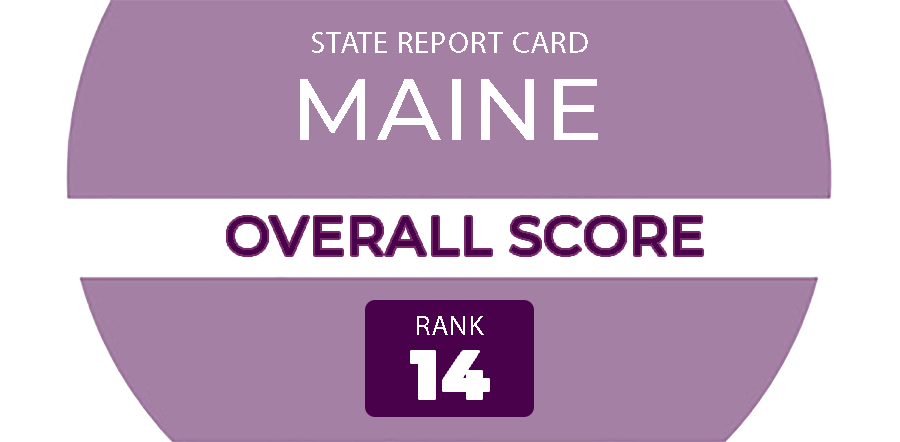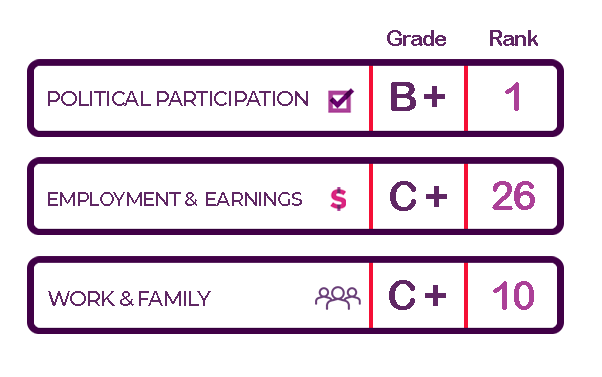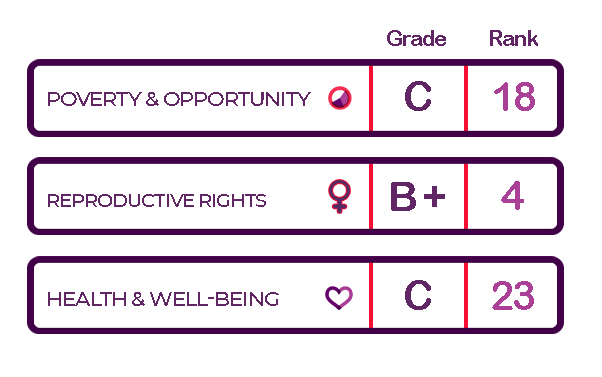
The Status of Women in the States project ranks and grades Maine across several areas of women’s lives. While Maine performs better in some areas, no matter the rank, there are still barriers and inequities that prevent women from succeeding and thriving. Across all indices, Maine ranks toward the top of states in the country. Maines’s performance is the strongest on the Political Participation and Reproductive Rights indices. Maines’s performance is weakest on the Employment and Earnings and the Health and Well-Being indices.


Explore the Data
As state policies and programs have changed over the years, so has the status of women in Maine. Since 1996, Maine has made progress in some areas, while lagging in others.
Articles and Publications
Majorities See Education as a Worthwhile Investment and Favor Student Debt Forgiveness in New IWPR Poll
This poll was conducted between October 10–12, 2023, among a sample of 2,207 adults. The interviews were conducted online, and the data were weighted to approximate a target sample of adults based on age, gender, race, educational attainment, region, gender by age, and race [...]
Apprenticeships Can Deliver High Earnings but Do So Less for Women than Men
Apprenticeships provide an earn-as-you-learn pathway free of college debt to industry-recognized qualifications in high-demand occupations. In FY 2023*, the median hourly wage for women who completed registered apprenticeships was $22.00 compared with $34.07 for men, a gender earnings ratio of just 64.6 percent. Black [...]
The Costs of Reproductive Health Restrictions: An Economic Case for Ending Harmful State Policies
Access to comprehensive reproductive health care is central to gender equity and women’s full participation in the workplace. For businesses, restrictions on access to reproductive health care are not only at odds with stated corporate values, such as equity and inclusion, they also affect [...]


